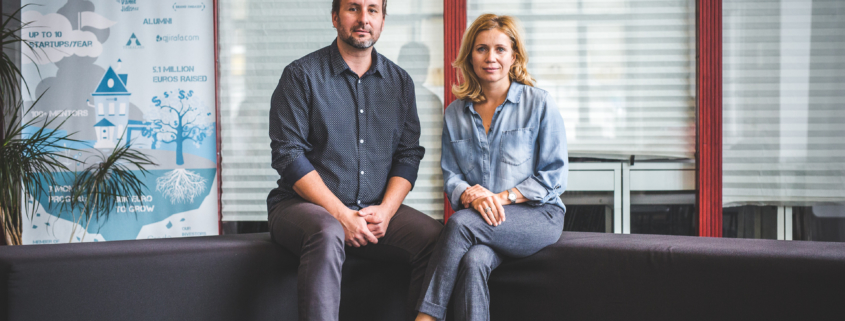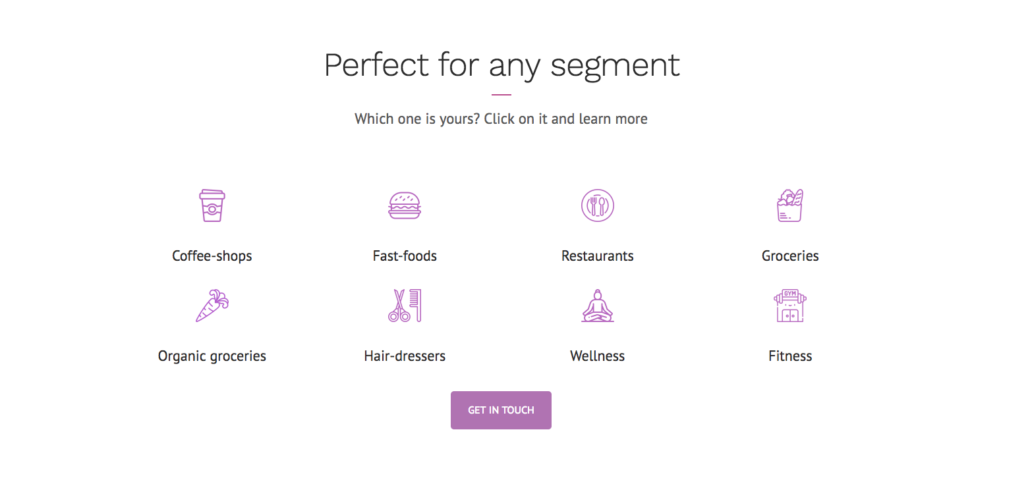Meet Payowallet: Customer Rewards for the Rest of US
In our continuing series of up-close, in-depth interviews with the founders of the StartupYard Batch X companies, we come to Payowallet, a Slovak startup founded by Klaudia Drabikova, and Gabriel Cegledi. Payowallet helps small retail businesses graft world class customer loyalty and rewards programs using their mobile-first application and payment platform. Unlike the loyalty programs of major retailers, Payowallet is accessible to any small business, and can be set up in minutes.
For this interview, both Co-founders chose to speak with me, so you will read answers from both Klaudia and Gabriel.
Klaudia Drabikova, the CEO, Has worked for 15 years in international non-banking and banking financial companies, specialized in consumer lending as Head of Direct business. Her working experience wass enriched in operations matters as a former COO and member of the Board of Cetelem Slovakia.
Gabriel Cegledi, the CTO, also has 15 years of experience, implementing loyalty rewards and payment cards programs for leading merchants and banks across Europe. Gabriel previously worked as Loyalty Products Owner at EMEA and International levels for First Data.

Here is what they had to say:
Hi Klaudia,you come to building a startup from a position of more experience than a typical founder. You spent 15 years in banking, and you were COO and a member of the board at Cetelem in Slovakia. Why found a startup focused on small retail businesses?
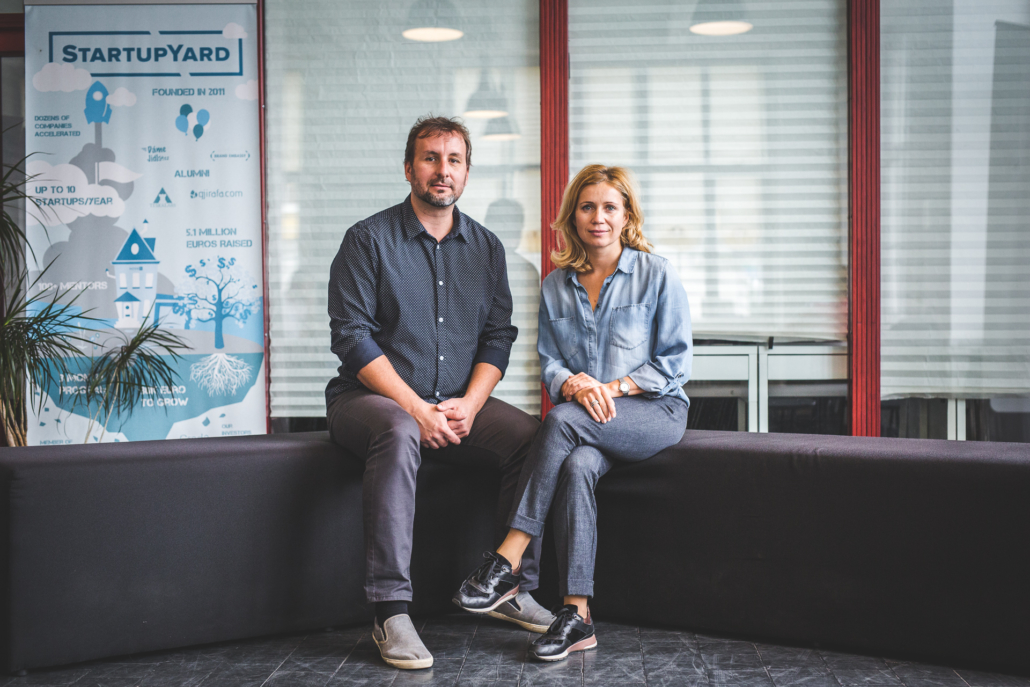
Co-Founders Klaudia and Gabriel
Klaudia: That’s an interesting question, because in some ways it is a big leap. Still in another way, I see this move as a natural extension of my career long interests. At Cetelem, I learned that it is increasingly difficult to differentiate a retail brand according to pricing, or even the number and location of branches. Those may be the first things you think about when it comes to a retail bank, and these factors matter, however they matter much less in proportion to the impact that good customer experiences can have on brand loyalty.
One of the ironies for a big brand is that as you scale larger over time, you focus increasingly on these marginal factors such as price and location, because they are easier to quantify and manage using a data centered approach. However, customer experience remains a huge factor in creating loyalty among your userbase. That is harder to do as a company gets bigger, because the ways you execute customer experiences at scale are different from those of a smaller company.
What I found over time was that big companies are investing a lot into large-scale customer experience solutions, such as loyalty programs, apps, messenger bots, and such things. Still, these investments are really trying to mirror what smaller businesses do as a matter of day-to-day practice in customer service. The result is that big retail brands have very sophisticated technology, but still many of the best practices in retail come from smaller brands that are more free to innovate on a smaller scale. So, small retailers have great ideas, but no way to support them with technology. It’s too expensive, and too de-focusing for them to develop their own apps or programs.
So Payowallet is trying to provide that technology basis for excellent customer experiences. I believe, and I have seen it, that better customer experience can create customer engagement, which is more important today than ever to differentiate from competition. Small businesses only lack the technology to execute on their customer knowledge and ideas. They don’t lack for either knowledge or ideas. So we want to make customer loyalty programs and digital payment systems available to retailers of any size, in a format simple enough for anyone to use without a major investment of time or resources.
Why found a startup focused on small retail businesses?
Gabriel: There are two questions in this sentence actually. First question – why did we want to found a startup? Well, we both worked in big companies – each of us in a different one – which grew from quite small firms to large corporations. From companies, where you knew all the employees – your colleagues, you all work together, you all work hard to get things done, all were personally responsible for every action, every success and mistake.
You had to find solutions despite different opinions, attitudes and varying personal characters within the team. The results and then also the joy and feeling of success from having done a great job were very tangible and personal, thanks to the real cooperation of all colleagues in the team and/or particular projects. We had really good times – both of us in our own companies. Now those companies have gotten very big, and these aspects naturally change to accommodate the new scale. We both felt it was time to search for something new, and begin again from the small scale.
Second question: Why focus on small retail businesses? The technology all retailers can now benefit from has progressed dramatically over the past few years. A few years ago, only large retailers, such as Tesco or Starbucks could have their own credit cards, loyalty programmes, analytics and proper full-stack marketing to end-customers.
Now, new technologies and new programming languages allow anyone to build marketing and payment systems in a fraction of the time for very little money. We saw these technologies evolving, we saw them coming, we were part of the process, we saw what impact they can have. And, these technologies small brands to be more relevant and personal when it comes to appealing to their customers. On the other hand, the end-customers have become more demanding – new generations (Y and Z) require more comfortable, easy-to-use and relevant products and personalized experiences when shopping.
Meeting all these new trends and requirements is not easy – but it is thrilling. It is extremely interesting to be able to help these small retailers who don’t really have the resources to keep up with all these new communications methods (e.g. Facebook, instagram, chatbots, messengers etc) and technologies (e.g. analytics) – not because they can’t or don’t want to – but simply they don’t have time and money for it (as they are doing all the hard work around their core products)…
To me it is a shame if a big retailer beats a smaller one only because they can outspend them on technology to reach the customers. That does not encourage a true vibrant competition between small and large players in the retail world. Democratizing the technology used for marketing and customer experience means better experiences for everyone.
Q: How did you two begin working together? Why are you a good match for this project?
Klaudia: First of all we know each other from the past, when Gabriel was working for a company delivering payments and loyalty services. Both of us left our companies, and were looking for new opportunities. When we met, of course there were discussions what to do, and because we have seen the trends in other developed countries in areas we had a knowledge in, we started to be hungry to do something similar in this region. Why we are a good match? In my opinion it’s like this: Gabriel has many, many ideas, and me, I like them to get them done! Gabriel always has many questions, like when a kid ask you why, why, why? All the the time, so he forces me to think and to be more prepared. We fit together in that way: by being opposites.
Gabriel: I saw these new technologies and opportunities coming, I saw them hitting and scratching the surface of the corporation I was working in as well – but months passed and none of the promising new technologies was being realized. None of them took off in the corporation really. It was not easy – to quit a good and safe salary, but couldn’t do it differently.
When we both quit – literally at the same time – despite the fact that it was not coordinated, we started to look at a couple of new opportunities, potential startup projects and technologies together – with some other friends of ours and our former colleagues.
We tested a couple of projects over a period of 7 months or so, and then decided on Payowallet – digital loyalty and marketing, including payments with mobile and sophisticated analytics. Very cool.
Why are we a good match? Well, the thing is that we are quite different, we have a different nature, we have different ideas, we have a different style of work – I like to work alone, closed in a basement in a cellar. But Klaudia needs plenty of people around her all the time. But when it’s time to get things done, we alighn. Obviously, we share a common vision and strategy. The differences help us look at the same thing from different angles, and so we are able to see new and more opportunities and options that would be overlooked otherwise – if we were the same or similar. This is a very good thing indeed. Obviously, different natures come with some disagreements, fights, arguments etc. But we respect each other well enough to overcome these in order to achieve a better outcome and result.
Q: Most people probably have some loyalty and membership cards. Why is it so hard for small businesses to run their own loyalty programs, and what are the benefits of doing so?
Klaudia: There has been research recently showing, that 44% of small businesses are focusing their marketing activities on acquiring new customers, but only 16% of them spend as much on existing ones. And there is other research showing, that 67% from existing customers are likely to buy another product from a retailer they go to regularly. These are not huge new discoveries in retail. It is an axiom of sales that an existing customer has ten times the value of a new customer.
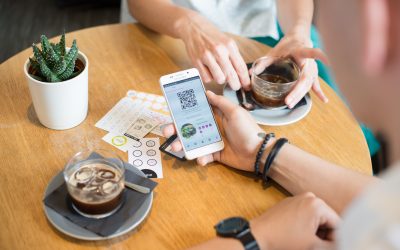
So, why do they not focus on existing customers? I believe it is partly because in this technological age, they are not sure where their customers are, or how to reach them. It may often be as simple as not really understanding which of your customers is even a loyal customer, and past that, how to actually reward that person. Keeping track of these things as a small business is difficult to do. Loyalty programmes play a big part in customer retention and not all retailers see the value in that, because they don’t know how to measure it.
The second thing is, that old-school style loyalty programmes, like paper or plastic cards don’t tell you that much. They don’t provide any data, or statistics. Much of the effort that goes into them is wasted. It’s hard to know their impact, or even know how many rewards you’ve given away. Plus, today another issue is privacy and GDPR. You now need informed consent to store customer data, and you need to justify its use.
This all sums up to a situation where small retailers can’t justify the cost and now the legal risk of initiating their own programs, particularly not being able to identify a clear return on the investment. New technologies make that decision a bit easier. We help retailers bring loyalty programs direct to the mobile number of each customer, opening up a new marketing channel, and a direct link with a loyal customer.
Gabriel: It is not only about rewarding my customers (as a retailer). It’s about the whole approach to communication with them. It’s also about a customers’ shopping experience. Small retailers have a massive disadvantage compared to large players in terms of marketing budgets. And then – what will be the customer’s choice if she is bombarded with more than 4500 marketing messages per day – as one marketing professional/specialist confirmed to us?
it is easy to guess. So, being able to “stay on the customer’s mind,” by choosing the right communication channels, being able to handle them all – so called omni-channel communication – FB, insta etc, providing relevant and personalized messages and communication to the customers – this is deeply challenging to a small coffee shop or burger-bar owner. They don’t have the resources of a nationwide brand or chain.
On the other hand, the retailers now really can benefit from the technologies – technologies provide them data insights – about customer’s purchase behavior, and technologies enable delivering the messages and communication right to the customers and in a manner that doesn’t annoy them and doesn’t spam them.
And as regards customers’ shopping experiences – you can see all those trends – order ahead and pay cashless – Uber, shared economies, buy online, get products delivered to your home, fine-tuned and sophisticated online shopping experience, after-sale care and services, in-store marketing and merchandising. All of these are available thank to progress in technologies, and the new generations take full advantage of these, grew up with these technologies, so they can’t even imagine doing any different. Keeping up with all of these opportunities and options is challenging for small retailers. That is where Payowallet is aimed at helping them out.
Practically speaking, what does it take to get set up as a retailer on PayoWallet?
Klaudia: PayoWallet is a mobile marketing platform, which consist fof components like digital loyalty, mobile payments, and data insights. For every retailer who is busy with their own activities and duties, but is looking for ways to engage with his customers better, we are the right solution. We help him to motivate his customers to come back more often, by providing technology to manage his loyalty program in a fully digital way.
Customers love it. Retailer gets statistics and insights, which can tell them much more about their customers, comparing with paper or plastic cards. Imagine, that you can easily set up your next marketing campaign to the right person and send it straight to her phone within a few minutes. If you are a retailer, with no time, or skills to manage campaigns by yourself, we can do it for you as a managed service too. Mobile payments will be the feature which will complete our brand name (the wallet part) and will make the experience much more convenient. Payment and loyalty will be just one transaction, which will deliver new data about customer purchase behaviour to the retailer.
Imagine being able to conceive and sell a new offer to the right set of customers within moments. Have an idea? Test it out on a group of your customers, and see the results instantly. Get people to come into your store or restaurant at just the right time.
What are some of the ways you would like your users to change their relationships with their customers using PayoWallet?
Klaudia: For the moment, first thing is that retailers start to think more about existing customers; because this is the target group you can rely on and you can sell more. Remember the statistic I told you earlier, 67% of existing customers will buy another product from you. Imagine having a tool to delight your customers individually and invite them for a specific, contextual reason to come again and to spend in your shop.
We can see many validated products in other markets, like the US, or UK, where it’s important for retailers to start to think about mobile strategy, which will help them to engage with their customers. This will become a standard. And small retailers can be even more happy that there will be such a SaaS technology they can use afforably.
Gabriel: We help the retailers to analyze what is happening at their stores. We help them understand they have top customers – who are returning to them often – and WHO they are! Now, the retailers are able to thank them, stay in touch and delight these customers with special perks, treatment and personalized messages. They couldn’t do this before (except a very few small exclusive shops, where they know all their customers by name).
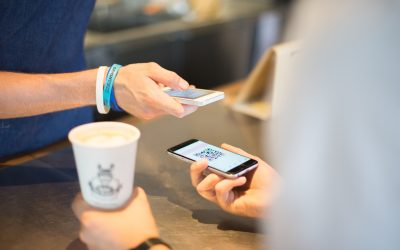
On the other hand, we can help them understand other customers who haven’t returned for a while. How could the retailers have a chance to reach out to these customers and re-engage with them? No chance! Now, we can tell who they are, how long they’ve been away, and enable the retailer to send offers to motivate the customers to come back.
Another thing – imagine announcing and sharing news about what is happening in my store with the customers – what options do the retailers have now? Posts on Facebook reach a fraction of their customers. But their regular customers, who shop with them quite often may really want to know if there is a new flavor of their favorite coffee, a new type of burger or a wine-tasting event. They would love to hear this. We help span all these missed opportunities.
What do you hope PayoWallet is going to be in 5 years, as a business, or as a technology. What would be your ideal scenario?
Klaudia: I would love to see a PayoWallet sticker on as many shops as possible. That means, that retailers are open to using mobile technologies. Their customers spend pm avg. more than 3 hours looking at their phones every day, so retailers have to adjust to be present there. Our goal right now is to increase the numbers of our partners, ideally in the Czech Republic and other countries of CEE and SEE that we find a good match with.
At the same time, we are working on the technology, which will combine mobile payments and loyalty in one simple transaction, which will deliver insights to retailers to help them make sales. In 5 years it will be a standard to pay with mobile, but our standard will be to pay with mobile and deliver added value for both: a retailer – having more data on who is his customer, and for the customer to enjoy all the benefits of one click payments and targeted communications they actually want.
Gabriel: I see this from two perspectives: regional and technological. Technological – as Klaudia said – retailers heavily using the advantages of the technologies and services provided and all parts of it, reward programmes, analytics, and mobile communication. And end-users benefiting from the ease of use of payments and of being rewarded.
What has been the biggest challenge for you, personally or professionally, in transitioning to the role of Startup CEO? How has the StartupYard experience affected that transition?
Klaudia: For me as a person it was like entering a completely different environment comparing to the corporate world. I had to overcome the fear of not knowing many things. In a startup you do so many different things on your own, in most of them you are not an expert, or you have no idea “how to”, but definitely “you have to”, because it is your company. Sometimes it takes you really far out of your comfort zone.
Startupyard is helping us to focus on what is important and whe,n and showing how to make each next step. And of course the people here are willing to share and give us courage, when needed. You don’t feel that alone though.
Gabriel: Running a startup is really completely different to working in a corporation. Obviously, this has been said many times, but just to confirm – in a corporation, there is a distinct and limited and defined set of tasks and content you are responsible for. In a startup, you do everything on your own. From marketing, through product, technology, infrastructure, wording on your facebook and on your web page. Obviously, you have colleagues working on this with you, but it is your call. So, yes, it is about overcoming the fear of unknown waters, and about trying to learn as much as possible and as quickly as possible.
How can businesses start taking advantage of PayoWallet right now? How do they get started?
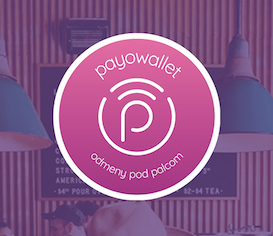
Klaudia: First of all, very easily. If a retailer has decided to become our partner, we just give him set of easy questions to be able to manage his offer towards customers, which will be displayed in our app. From loyalty rules, exclusive offers, or products, which can be sold in advance. We do the rest, set up in the system takes a few minutes. The retailer can start to create their own database of customers from Day one. No complicated integrations, no GDPR issues, just one smartphone and that’s it.
“I would like offer you rewards, use our app” is the only sentence they might use in the checkout process to create the engagement. The rest is on us.
You both have children. What is it like to be a mother or a father and founding your own company?
Klaudia: I feel good, because as a founder you are the owner of your time and you can adjust to the needs of your child. But I am not the mother with fashion bags anymore, because I need to carry my notebook everywhere, using every opportunity while waiting for my son at his guitar classes, or sport activities. My time is calculated to every minute. To watch another movie, is today a task for time management! As a co-founder of such a company it is very much about networking and this is a part you are quite often limited, but we are trying to manage and to share with Gabriel if needed.
Gabriel: Frankly, it’s extremely challenging and really not an easy thing. A friend of mine once told me: your first children will eat 90% of your free time. The second kid, she will require the remaining 60% of your free time! I fully agree. And now – I have 3 kids. And I’m telling you – a startup will eat through the remaining 200% of your free time. And it comes with so many uncertainties and unexpected situations. So, juggling with time, that’s priority number one for me. I’m dealing with it every day, and I’m considering every ten minutes of my time – where and how I’m going to spend it. But running your startup is so interesting – it’s worth all the hassle.

